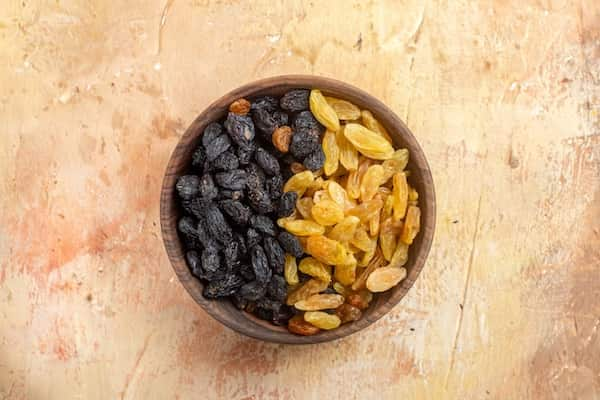peppermint tea is a plant useful for body health. This plant is known as a medicinal plant in many countries of the world. Its good taste and creating a cool feeling in the mouth has led to the use of mint in foods, edibles, candies, mouth fresheners and perfumes, cosmetic and health products, etc. Also, this plant is used to perfume the space and aromatherapy. One of the best uses of this plant is to treat digestive pains.

What is peppermint tea?
Peppermint herbal tea is brewed from peppermint leaves and is consumed like tea. This tea is caffeine-free, so people who suffer from sensitive sleep patterns can benefit from drinking this soothing tea before bed.
The scientific name of peppermint is Mentha piperita. This plant is native to Europe, but the wide range of uses of this tea has made peppermint a global product. Also, people around the world enjoy drinking peppermint tea. Peppermint oil is a popular form of medicinal treatment, especially for irritable bowel syndrome (IBS).
Peppermint helps to improve food digestion, eliminates bad breath and is useful for preventing and treating colds and seasonal allergies due to its natural antimicrobial properties.
Health benefits of peppermint herbal tea
Peppermint is a popular traditional remedy for a number of ailments. It is believed that this plant has sedative effects. This plant is used to treat flatulence, treat menstrual pain, treat diarrhea, nausea, treat depression-related anxiety, improve muscle and nerve pain, colds, indigestion, and irritable bowel syndrome.
peppermint tea benefit for Indigestion
Peppermint relaxes stomach muscles and improves bile circulation, according to the University of Maryland Medical Center (UMM). As a result, it is suitable for people who have indigestion. However, people suffering from gastroesophageal reflux disease (GERD) should not use it.
peppermint tea benefit for Irritable bowel syndrome
Scientific studies have shown that peppermint in various forms can help treat the symptoms of irritable bowel syndrome (IBS). These symptoms include:
the pain
flatulence
diarrhea
A 2008 study published in the British Medical Journal concluded that peppermint is useful as an antispasmodic agent in the treatment of IBS. Antispasmodic properties are properties that reduce the intensity and frequency of muscle spasms or involuntary movements.
Some studies have shown that peppermint can help reduce pain caused by IBS. A study published in 2013 stated that this herb is useful in treating abdominal pain in patients with diarrhea due to IBS.
A research group from the University of Adelaide in Australia concluded that peppermint activates an analgesic channel in the large intestine that reduces inflammatory pain in the intestine.
Prevention of nausea and vomiting
When it comes to illness, few unpleasant things like nausea come to mind. Peppermint tea is antispasmodic, so it reduces the chances of vomiting and nausea, even in the case of motion sickness on a boat or plane. It also reduces abdominal pain and relaxation associated with motion sickness with its anti-inflammatory properties.
Treatment of respiratory disorders with peppermint tea
As an antispasmodic, peppermint tea can eliminate the feeling of irritation that causes coughing and thereby aggravates respiratory disease. By relaxing the throat and chest muscles, you can eliminate cold and flu symptoms.
Peppermint tea promotes oral and dental health
Peppermint helps oral and dental health because of its strong aroma and antimicrobial properties.
Peppermint peppermint properties prevent bad breath by eliminating the bacteria in the mouth. This demon, with its good aroma, makes the mouth fragrant.
Other properties of peppermint are the presence of microbial bacteria that eliminate gastric germs and eliminate bad breath.
Boosting the immune system
Mint tea has antibacterial properties against bacteria that cause diseases such as fever, cough and cold. Drinking this delicious tea can not only help you treat the symptoms of the disease, but also prevent you from getting sick. Also, the presence of rare elements of vitamin B, potassium, antioxidants and calcium in this tea can help absorb nutrients to fight diseases and functions necessary to keep your body healthy.
Reduce stress
The natural relaxing or antispasmodic properties of menthol will help you get rid of mental stress. The anti-inflammatory nature of peppermint tea can lower blood pressure and body temperature, allowing you to relax and de-stress.
Peppermint has antibacterial properties and by reducing the microbes that cause dental plaque, it helps to eliminate bad breath and reduces the risk of tooth decay.
Prevention of nausea and vomiting
When it comes to illness, few unpleasant things like nausea come to mind. Peppermint tea is antispasmodic, so it reduces the chances of vomiting and nausea, even in the case of motion sickness on a boat or plane. It also reduces abdominal pain and relaxation associated with motion sickness with its anti-inflammatory properties.
Peppermint tea for weight loss
You may also have started a weight loss diet and are looking for a way to have a greater effect on burning fat. The properties of mint tea for slimming can help to break fat tissue and lose weight faster. Mint herbal tea is very effective for slimming and reducing appetite; The mechanism of this herbal tea on the body reduces hunger and eliminates false appetite.
Using the properties of mint tea for weight loss is a good alternative to high-calorie snacks. If you drink some mint tea in the morning before eating breakfast, this will help increase your metabolism. Using a combination of mint and green tea is very useful for weight loss. Catechin is one of the important components of green tea and its combination with mint tea significantly increases the fat burning properties of this drink.

Side effects of peppermint tea
who should not drink peppermint tea?
It is not recommended for people with indigestion
People who suffer from indigestion should consult a doctor before consuming peppermint tea. This type of drink may interact with indigestion medications and lead to more side effects.
It lowers blood sugar levels
Peppermint tea can lower blood glucose (sugar) levels. This tea may also interact with diabetes medications. Therefore, people with diabetes should refrain from consuming this tea or consult a doctor before consuming it to make sure that it does not pose any danger to them.
It leads to allergic reactions
Side effects of peppermint tea can cause allergic reactions. Headache and sores in the mouth are among the symptoms of mint allergy. If you experience the symptoms mentioned after consuming this tea, stop consuming the tea and consult your doctor in this regard.
It is harmful for people with gastric reflux
Peppermint tea is harmful for people with gastric reflux, If you have reflux disease, you should not drink mint tea. Some people may experience relief from reflux symptoms after consuming this tea, while others may experience worsening symptoms.
Harmful to babies
Peppermint tea is believed to be very strong for children and babies. This drink may cause breathing problems and a burning sensation in the mouth of babies and children. Avoid giving even a small amount of this tea to your baby and child.
It interferes with some medicines
Interference with some medications is another side effect of mint tea. This tea interferes with medicines for stomach acid, blood pressure and diabetes and leads to some side effects. If you are taking medication for the listed conditions, avoid drinking peppermint tea.
Is peppermint effective for toothache?
Peppermint is obtained from the Mentha balsamea Wild plant and its main ingredient is menthol, which may make up to 48% of it. Peppermint oil combined with menthol has been shown to have a moderate antibacterial effect against gram-positive and gram-negative bacteria.
Another natural home remedy for a toothache is peppermint tea bags. This home remedy can help numb and relieve toothache. First, steep the tea bag in a cup of hot water for two minutes, then remove it from the water and allow it to cool. You can then apply a tea bag to your sore gums to help numb and relieve the pain.
With these home remedies for toothache, you can surely relieve and even heal a mild toothache. While persistent toothaches are often a sign of underlying oral health problems, such as infection, tooth decay, and cavities, we reiterate that you should see your dentist if you experience symptoms.
Does a peppermint herbal tea caffine?
Unlike regular tea, peppermint tea does not contain caffeine. Therefore, those who have trouble sleeping can eat it before going to sleep without worry.
In the end, it can be said that if you are pregnant, have diabetes or have heart problems, it is better to consult your doctor before continuously consuming this herbal tea.








